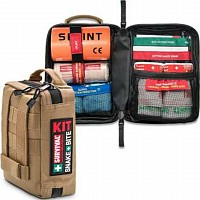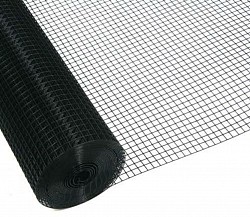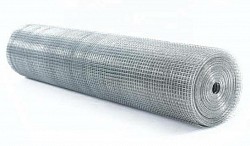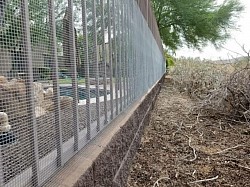Information
What do I do if I am confronted by a snake?
Snakes are not the evil monsters who are out to kill you as some people believe, they will generally move away from you if you come across them.
If confronted by a snake you should stay nice and still, not make any fast movements and do not attempt to approach or interact with the snake in any way. Back away slowly until you have a good distance between yourself and the snake and then contact your local snake catcher if you wish for the snake to be removed.
DO NOT attack and try to kill or otherwise interact with a snake. Doing so without the correct training and licensing is illegal and dangerous. Most bites on humans occur as a result of people interacting with a snake so do not put yourself or others at risk, do the right thing and contact a trained professional.
What should I do if I am bitten by a snake?
If you are bitten by a snake the most important thing to do is to remain calm, and call 000 immediately.
Apply a pressure immobilisation bandage to the limb starting from the bite site, to the end of your fingers/toes and all the way back up to the top of the limb. You can purchase a pressure immobilisation bandage from your local pharmacy or purchase a snake bite kit (pictured above) that contains one.
Once the bandage has been applied immobilise the limb and move as little as possible as movement will make the venom spread more rapidly. Wait for the Ambulance or have someone drive you to the nearest hospital for immediate treatment.
DO NOT try to drive yourself to hospital as you may become impaired or even lose consciousness from the affects of the venom.
DO NOT try to kill or catch the snake to bring to the doctors, they have their own method for identifying the anti-venom if it is needed. By trying to capture or kill the snake you are only risking another bite to yourself or others.
DO NOT cut the wound and/or try to suck the venom out. This can actually spread more venom and if the person sucking the wound has any small cuts or open wounds in their mouths they can become envenomated themselves.
DO NOT wash or clean the wound before bandaging. Doctors need to take a sample from around the bite site to identify the species of snake that caused the bite and administer correct treatment.
DO NOT cut off blood supply to the limb by using a tourniquet, this can cause more harm than good. A correctly applied pressure bandage and immobilisation of the limb is more than adequate to buy you enough time to seek medical assistance without causing major permanent damage to the limb through loss of blood supply.
How can I prevent snakes from coming onto my property?
Keep in mind these are preventative measures only and although they will not stop a snake from entering your property if it wants too, these simple things will make your property less attractive to a snake.
1. Cover all holes leading to your house or garage. These kinds of places provide warmth, safety and shelter to a snake looking to escape a predator, or the heat of the day so by minimising access points to you house and garage you minimise the chances of a snake getting in.
2. Maintain your garden.
Keeping grass trimmed, garden beds weeded, wood piles neatly stacked and picking up debris such as sticks and leaves as well as cleaning up any rubbish or jargon around the property minimises the amount of places a snake or rodents can hide.
3. Keep control of the rodent population.
Humans inevitably attract rodents and rodents attract snakes. If you clean up food scraps and maintain a clean, hygienic household then less rats and mice resulting in less snakes. If you find you have a mouse or rat problem, then contact your local exterminator to get this taken care of.
4. Block holes and cavities in wall structures and rock retaining walls, ect.
As with your home or garage, snakes love these places as they provide a safe, cosy refuge from predators, the weather and so on and so forth.
5. Minimise low shrubbery.
Shrubbery and low bushes provide cover for snakes to travel through or hide in. Consider what trees and plants you have in the garden, taller tress and shrubs provide less low bearing cover for snakes and as long as you maintain the garden and clean leaf litter you will have reduced the chances of encountering snakes.
6. Install Snake and rodent mesh.
Nearly all of Australia's deadly snakes are terrestrial animals so stick close to the ground and snake and rodent mesh (see examples at bottom of page) installed correctly around the boundaries of your property is a great way to minimise the chances of snakes finding a way into your yard by simple reducing the amount of places it can come in. This is a safer option for the snake and you as the small size of the holes means they cannot get through and get themselves stuck like they do with bird netting.
These are a few simple ways you can reduce the chances of encountering a snake on your property. Snakes only really seek out three things, food, water and shelter. If you minimise availability to these three things on your property you make it less attractive to snakes.
There are many other methods out there that simply do not work and are in some cases downright dangerous to wildlife or the environment. Some of these include:
1. Bird netting.
These may be good at keeping birds from your gardens, but these are a death sentence for snakes and other wildlife who get caught up in them and slowly die a painful death. Do not use bird netting as a deterrent as it is illegal to kill snakes in Australia and these cause the deaths of so many.
2. Oil or diesel barrier.
These absolutely do not work at keeping snakes from entering your property and in some cases even poison the ground and surrounding environment killing other flora and fauna.
3. Snake repellers.
Snake repellers are commonly advertised as effective preventative measures to deter snakes however these do not work. Snake repellers transmit a vibration every 30 seconds or so similar to that of a rodent - which snakes love to prey on. Some also transmit a high pitched tone also designed to frighten snakes, however snakes do not posess external ears and as such possess very limited hearing so this is completely ineffective. As many snake catchers will tell you, snakes are commonly found near or even sometimes on snake repellers showing just how ineffective they are. There has never been any evidence provided that snake repellers work but plenty of evidence to prove that they don't.
4. Pets as snake deterrents.
Some people have been given advice that certain pets keep snakes away from your property, some breeds of dogs or cats for example but the reality is pets are dangerous to snakes and snakes are dangerous to pets. Dogs for example will attack snakes to protect their home, or out of curiosity to see if they are friends or food. This in turn puts your dogs at risk of receiving a deadly bite. To help prevent harm to your dogs, snake avoidance training is one effective way to train your dogs to not interact with snakes. Check out our contact page for Dog snake avoidance training based in Langwarrin South. Alternatively search for snake avoidance training on Google for more details and to find a place locally if you are interested.




